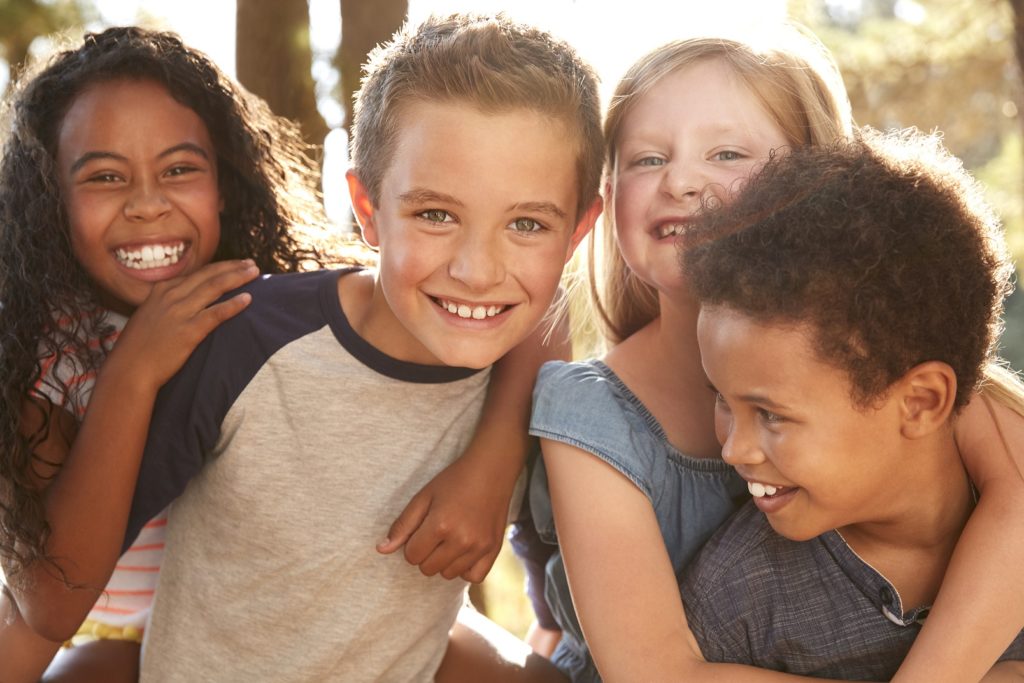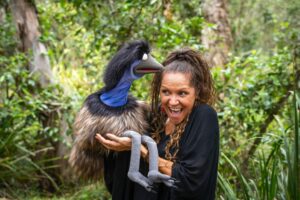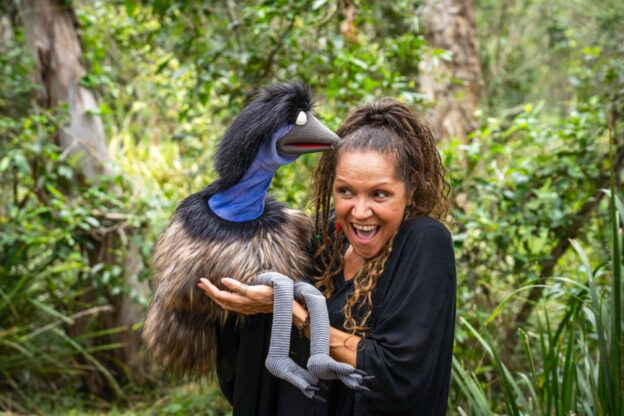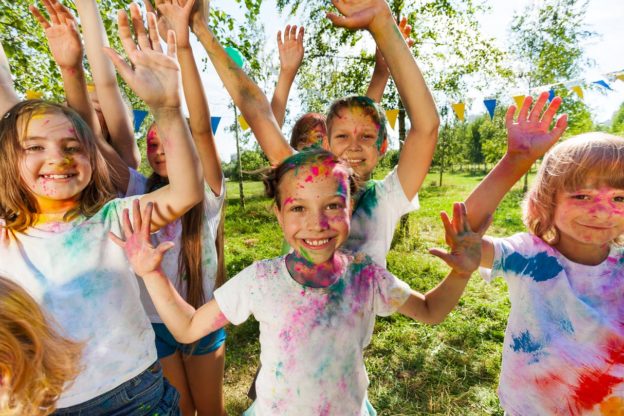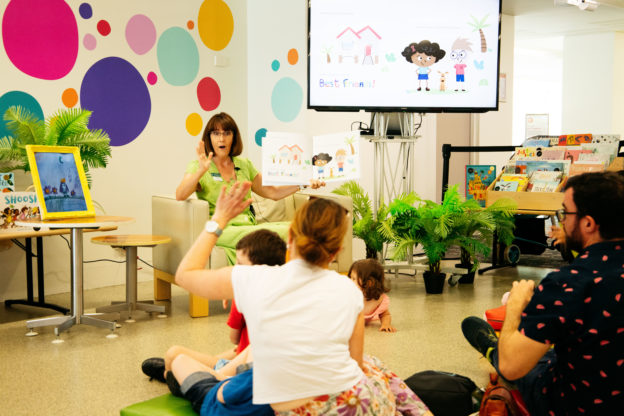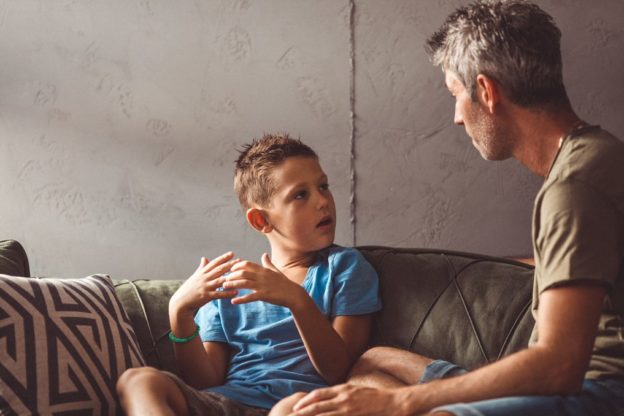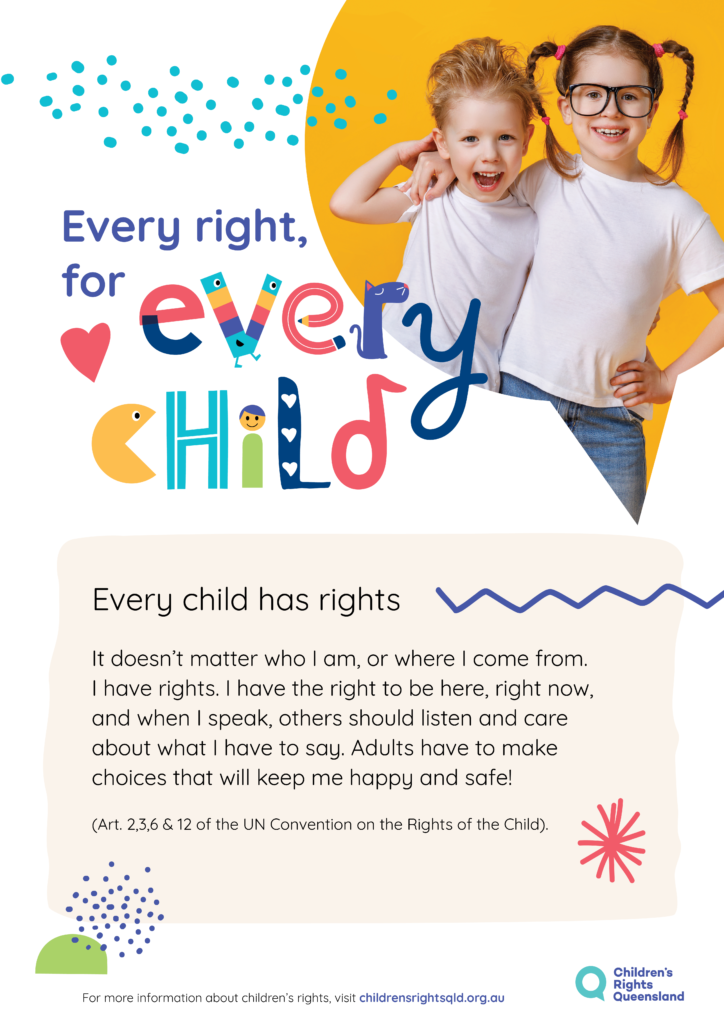Choosing friends and safely connecting with others is an essential part of a child’s growth and learning.
It’s also the theme for Children’s Week 2021.
And while choosing friends comes easily to some children, for many young people, there can be barriers to doing just that.
Encouraging young people to participate in their own decision-making process is an essential part of supporting greater agency in youth. With the right guidance, children and young people can choose friends and social connections that will help them to flourish in their personal and social development.
Article 15 of the United Nations Convention on the Right of The Child (CRC) calls for adults to help to organise children socially and engage them on issues that directly affect them – from the way they care for themselves and their education, to how they contribute to community-based initiatives. Adults have a responsibility to help children when it comes to self-determination as they safely facilitate their groups and meetings.
Article 15 is centred on providing young people with the opportunity to amplify their voices. And including their contributions into wider conversations is the first step in helping each child bring about the change they want to see in our world.
What does article 15 say about the right to join groups?
Article 15 of the United Nations Convention on the Right of The Child (CRC) was written to allow all children the freedom to meet and join any group or organisation they choose.
It states:
“Children have the right to meet together and to join groups and organisations, as long as it does not stop other people from enjoying their rights. In exercising their rights, children have the responsibility to respect the rights, freedoms and reputations of others.”
When put into action, this article encourages children from any background to come together with likeminded people and take part in activities they enjoy, and discussions about the issues that affect their daily lives. It provides a safe haven for young people to share their ideas without fear of discrimination and gives them autonomy and self determination to show leadership and respect for others.
Every child has the capacity to do this. They can cooperate, collaborate and manage their own groups. But of course, they must be given the space to do this.
So how can adults help? How can we facilitate self-organisation without taking away from the independence that youth-led groups create?
Let’s take a step back
The way we interact with children can have a genuine impact on the way they see the world. Considering how to positively use your position of support when engaging with children’s groups is a key step towards fostering strength and independence in young people.
Here are some ways in which you can facilitate effective self-organising:
- Respect children’s choices
- Always actively listen
- Help children connect safely with others
- Be a supporter and not a leader
- Trust each child’s capabilities
- Give children space to learn and grow
- Gain a deeper understanding of children’s rights.

What does it look like when children become leaders under Article 15?
When given the chance to lead on their own, children can go far beyond previous expectations of what they can achieve. This can range from student-led learning in the classroom, to locally run groups focussed on citizenship and active democratic participation.
Here are some examples of how groups can bring young people together:
- Inquiry based classroom learning
- School clubs and committees
- Local sports and athletics clubs
- Community civics and citizenship organisations
- Creative and performing arts societies
- Gardening clubs
The options are only limited by your imagination (and budget!), and there are plenty of opportunities for young people can self-organise. With options for groups and social encounters across any area of interest, Article 15 plays an important role in helping youth discover their passions and develop their skills from an early age. There are always opportunities for connection, and the way we encourage and get behind these encounters plays a huge role in children understanding themselves and finding activities they enjoy.
Children’s Rights Queensland’s Young Leaders Challenge is one way young people can learn more about leadership, their abilities and support their community.

How can adults protect children in groups and reduce risk
As key support partners in youth organising, adults play a vital role in ensuring a safe environment for children to form as a group. Our ability to understand and manage risks are critical in helping young people to freely meet and connect with others.
Both emotional, and physical well-being are at the heart of a safe space for growth and learning. To reduce potential harm, it’s best to think about and define potential risks.
This includes:
- Thinking about your organisation, its activities, and the services it provides to children
- Planning how to make activities as safe as possible
- Working with group leaders and organisers to create and implement a risk management plan
- Having a communication plan/protocol in place
- Being proactive to reduce the likelihood of risks.
So how do you start? It’s best to ask a few questions:
- What could go wrong during any specific activity?
- Are there any circumstances that expose children to risk?
- How much adult involvement is expected?
- Can children and young people express themselves freely?
- Is there adequate support available for those needing it?
- Are there any children who are particularly vulnerable?
It can be a lot to think about on your own, but the best news is – you don’t have to!
Including children and young people in the process of identifying risks is a great way to engage and educate them on thinking ahead, planning and communicating with others. As a team, both adults and children can work to create effective strategies that keep everybody safe. And of course, if certain things aren’t working (which they almost certainly won’t at times), there’s always an opportunity to learn and develop new strategies that best suit the needs of each and every child.
Empowering children and youth to self organise – some tips on supporting and encouraging, mentoring and modelling
Giving children and youth a greater say in the way they self organise is not only a confidence boosting experience, it’s empowering. As they understand their rights and feel comfortable with themselves and those they choose to associate with, young people become stronger and more active in their community participation.
As facilitators and mentors, adults play a key role in how we empower young people. By providing them the freedom to organise in a safe way, we can help youth:
- Express themselves
- Become more resilient
- Understand and identify risks
- Seek out support when needed
- Develop confidence and greater agency
- Build strong and healthy relationships.
And how do we do this?
Although we’re taking a back seat when it comes to self organising, there are a few ways adults can lead by example. By actively listening to what young people have to say, adults can:
- Show that they value children and young people and their contributions
- Demonstrate a commitment to their rights
- Take their experiences seriously and respond to their views and insights
- Demonstrate a commitment to keeping them safe.
Over to you
As the theme for Children’s Week 2021, Article 15 shines a light on the many ways children can come together, work side by side and grow as part of an organised group. We all have a role to play, and with the spotlight on this important right, now’s the time to learn what we can do to uphold it.
If you liked this article please share.
References:
https://www.unicef.org.au/our-work/information-for-children/un-convention-on-the-rights-of-the-child
https://www.childrensweek.org.au/

